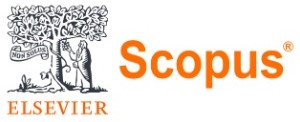Legitimacy and liberalism in F. A. Hayek's thought: A critique
Santiago Ortúzar Lyon
ABSTRACT
Abstract. This article explores the role played by the legitimacy of liberal institutions (par excellence, the market economy) in Friedrich Hayek’s thought. Hayek pays significant attention to the issue of the market’s normative justification, but his advocacy for a ‘dogmatic’ defense of individual freedom is unable to account for the concrete experiences of individuals operating within the purview of the market, which are necessary for the generation of legitimacy. This paper then presents a possible solution to this problem found in the work of Jeremy Shearmur, but upon evaluation it is not found an appropriate response. Therefore, at least in these two dimensions of Hayekian thought there are significant limitations concerning the political conditions for the success of the liberal project, the acceptance of which on behalf of individuals is therefore argued to possess a structurally fragile character.
Keywords: Friedrich Hayek; legitimacy; liberalism; market; agency
Keywords:
References: REFERENCIAS
Atria, F. (2010). Socialismo hayekiano. Estudios Públicos, 120, 49-105. [ Links ]
Gamble, A. (2013). Hayek: The iron cage of liberty. Kindle Ed. Polity. [ Links ]
Gaus, G. F. (2006). Hayek on the evolution of society and mind. En E. Feser (Ed.), The Cambridge Companion to Hayek (pp. 232-258). Cambridge University Press. [ Links ]
Gray, J. (2003). Hayek on Liberty (3a ed). Routledge. [ Links ]
Griffiths, S. (2014). Engaging Enemies: Hayek and the Left. Rowman & Littlefield. [ Links ]
Hayek, F. A. (1949). The Intellectuals and Socialism. University of Chicago Law Review, 16(3), 417-433. [ Links ]
Hayek, F. A. (1967). The Principles of a Liberal Social Order. En Studies in Philosophy, Politics and Economics (pp. 160-177). Routledge. [ Links ]
Hayek, F. A. (1990). The Atavism of Social Justice. En New Studies in Philosophy, Politics, Economics and the History of Ideas (pp. 57-68). Routledge. [ Links ]
Hayek, F. A. (1991). The Fatal Conceit: The Errors of Socialism. University of Chicago Press. [ Links ]
Hayek, F. A. (2005a). Dr. Bernard Mandeville (1670-1733). En W. W. Bartley III y S. Kresge (Eds.), The Trend of Economic Thinking: Essays on Political Economists and Economic History (pp. 74-96). Routledge. [ Links ]
Hayek, F. A. (2005b). The trend of economic thinking. En W. W. Bartley III y S. Kresge (Eds.), The Trend of Economic Thinking: Essays on Political Economists and Economic History (pp. 13-30). Routledge. [ Links ]
Hayek, F. A. (2010). Studies on the Abuse and Decline of Reason: Text and Documents. University of Chicago Press. [ Links ]
Hayek, F. A. (2011). The Constitution of Liberty: The Definitive Edition. University of Chicago Press. [ Links ]
Hayek, F. A. (2013). Law, Legislation and Liberty. Routledge. [ Links ]
Hayek, F. A. (2014). The market and other orders. University of Chicago Press. [ Links ]
Kley, R. (1994). Hayek’s social and political thought. Clarendon Press. [ Links ]
Kukathas, C. (1989). Hayek and modern liberalism. Oxford University Press. [ Links ]
Mansuy, D. (2015). Liberalismo y política: la crítica de Aron a Hayek. En P. Ortúzar (Ed.), Subsidiariedad. Más allá del Estado y del mercado (pp. 53-75). IES. [ Links ]
Mansuy, D. (2018). Historia y política en el pensamiento de Friedrich Hayek. Una aproximación a Law, Legislation and Liberty. En F. A. Hayek. Dos ensayos sobre economía y moral (pp. 13-63). IES. [ Links ]
Michéa, J. C. (2009). The realm of lesser evil. Polity. [ Links ]
Nozick, R. (1999). Anarchy, State and Utopia. Wiley Blackwell. [ Links ]
Petersen, M. (2018). El mercado, sus fundamentos morales y sus efectos sociales: Hayek versus Röpke. En F. A. Hayek. Dos ensayos sobre economía y moral (pp. 65-108). IES. [ Links ]
Petsoulas, C. (2001). Hayek’s Liberalism and its Origins: His Idea of Spontaneous Order and the Scottish Enlightenment. Routledge. [ Links ]
Reinhoudt, J. y Audier, S. (2018). Introduction. En The Walter Lippmann Colloquium: The Birth of Neo-Liberalism (pp. 3-52), Palgrave Macmillan. [ Links ]
Schütz, A. y Luckmann, T. (1973). Las estructuras del mundo de la vida. Amorrortu. [ Links ]
Sciabarra, C. M. (1995). Marx, Hayek and Utopia. State University of New York Press. [ Links ]
Scruton, R. (2006). Hayek and Conservatism. En E. Feser (Ed.), The Cambridge Companion to Hayek (pp. 208-231). Cambridge UP. [ Links ]
Shearmur, J. (2003). Hayek and After: Hayekian Liberalism as a Research Programme. Routledge. [ Links ]
Shearmur, J. (2006). Hayek’s Politics. En E. Feser (Ed.), The Cambridge Companion to Hayek (pp. 148-170). Cambridge UP. [ Links ]
Tebble, A. J. (2009). Hayek and social justice: a critique. Critical Review of International Social and Political Philosophy, 12(4), 581-604. [ Links ]
Weber, M. (2002). Economía y sociedad. Esbozo de sociología comprensiva. Fondo de Cultura Económica. [ Links ]
1Agradecimientos: Agradezco al Instituto de Estudios de la Sociedad (IES) por su considerable apoyo a la escritura de este artículo, especialmente a sus integrantes Josefina Araos, Daniel Mansuy y Manfred Svensson. Extiendo mis agradecimientos al equipo editorial de Universum y a las/os árbitros evaluadores que comentaron el manuscrito. Todos los errores, desde luego, son responsabilidad mía.
Received: March 19, 2019; Revised: September 21, 2021; Accepted: November 17, 2021
Este es un artículo publicado en acceso abierto bajo una licencia Creative Commons







